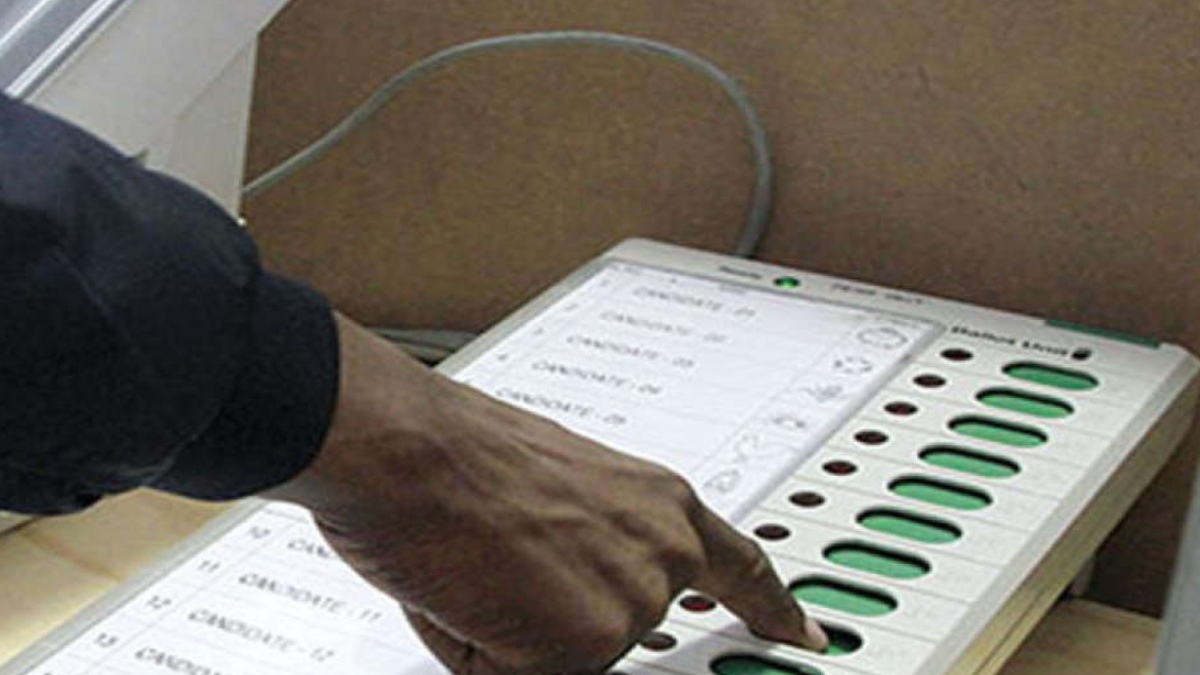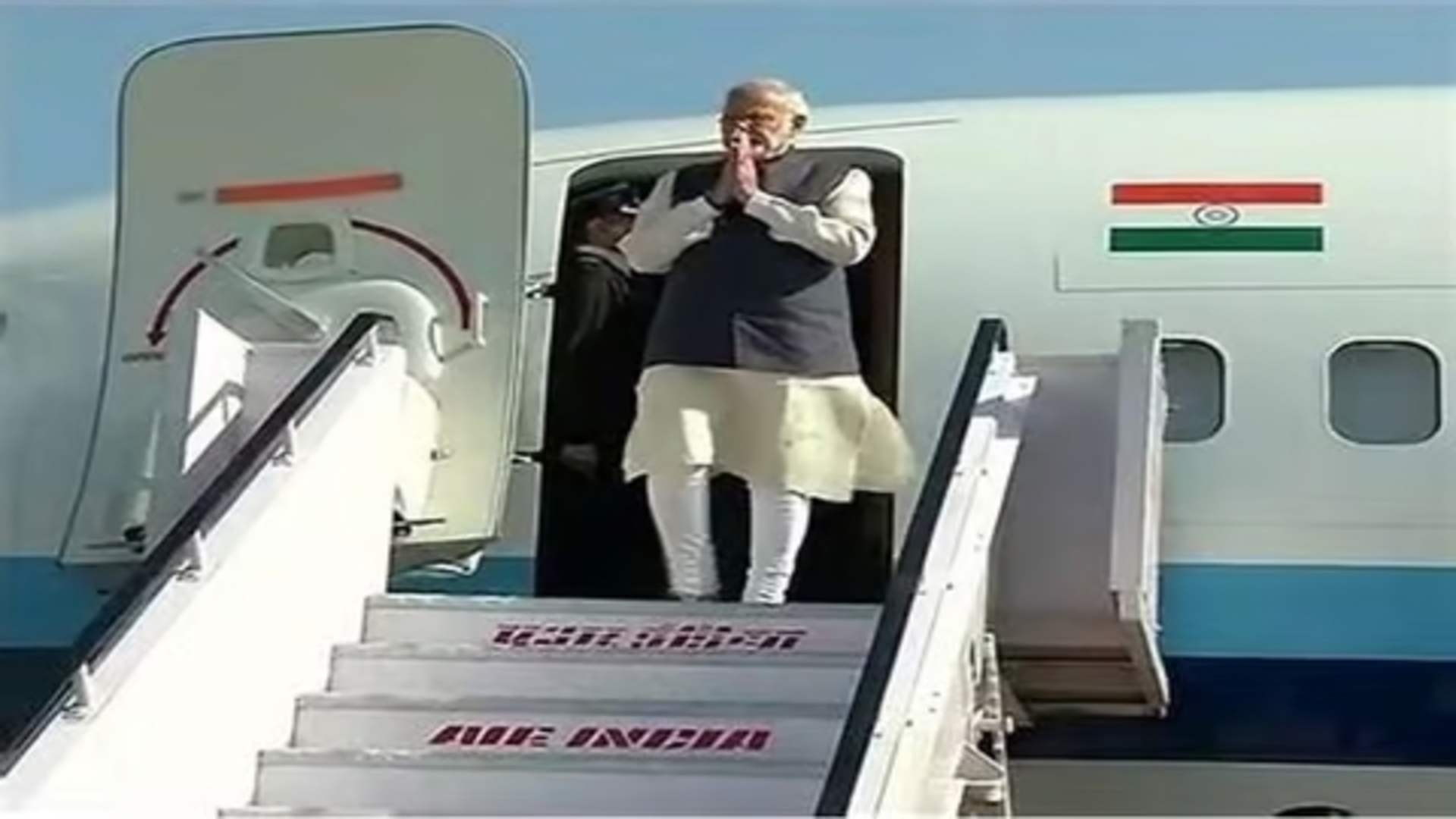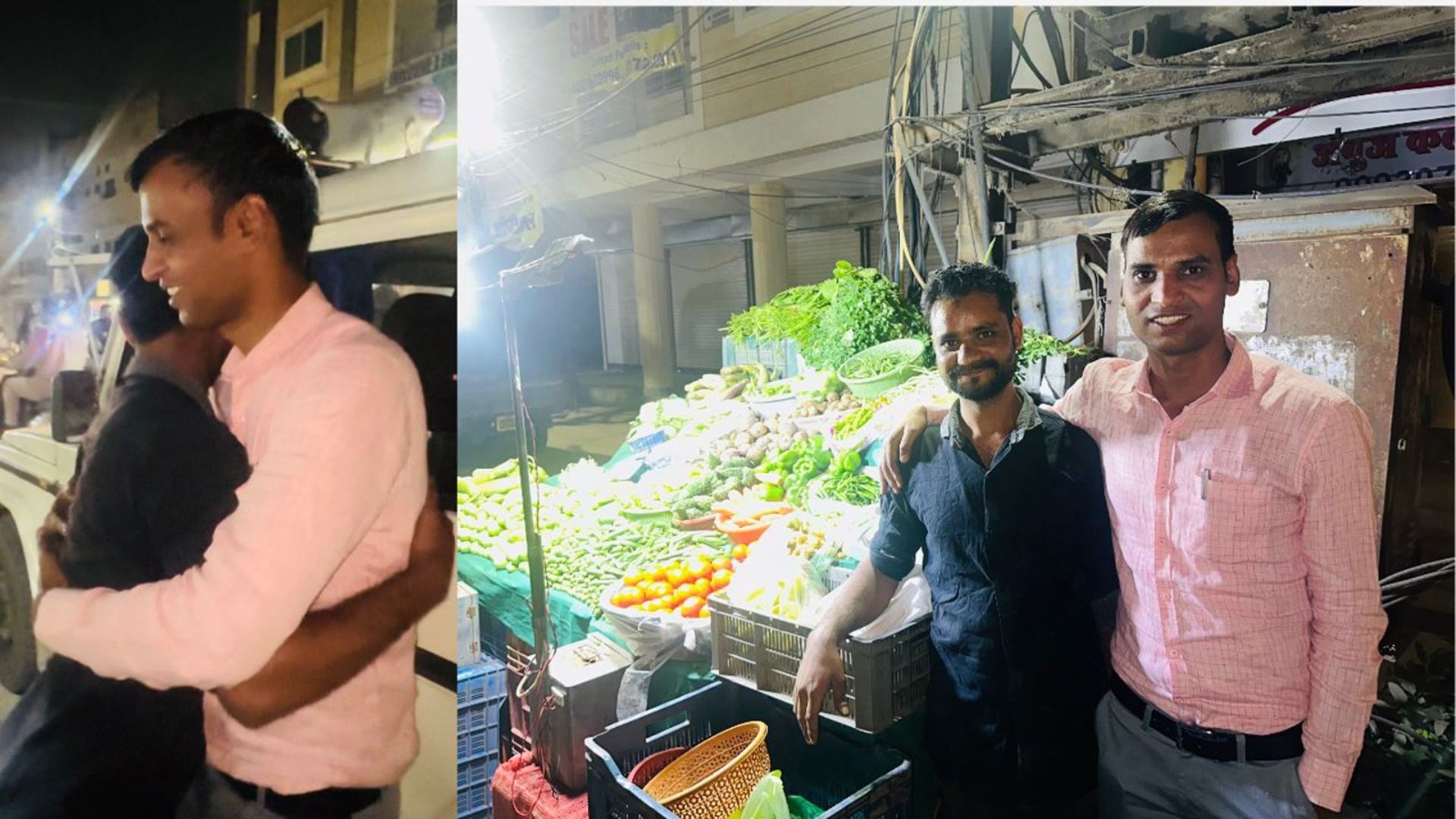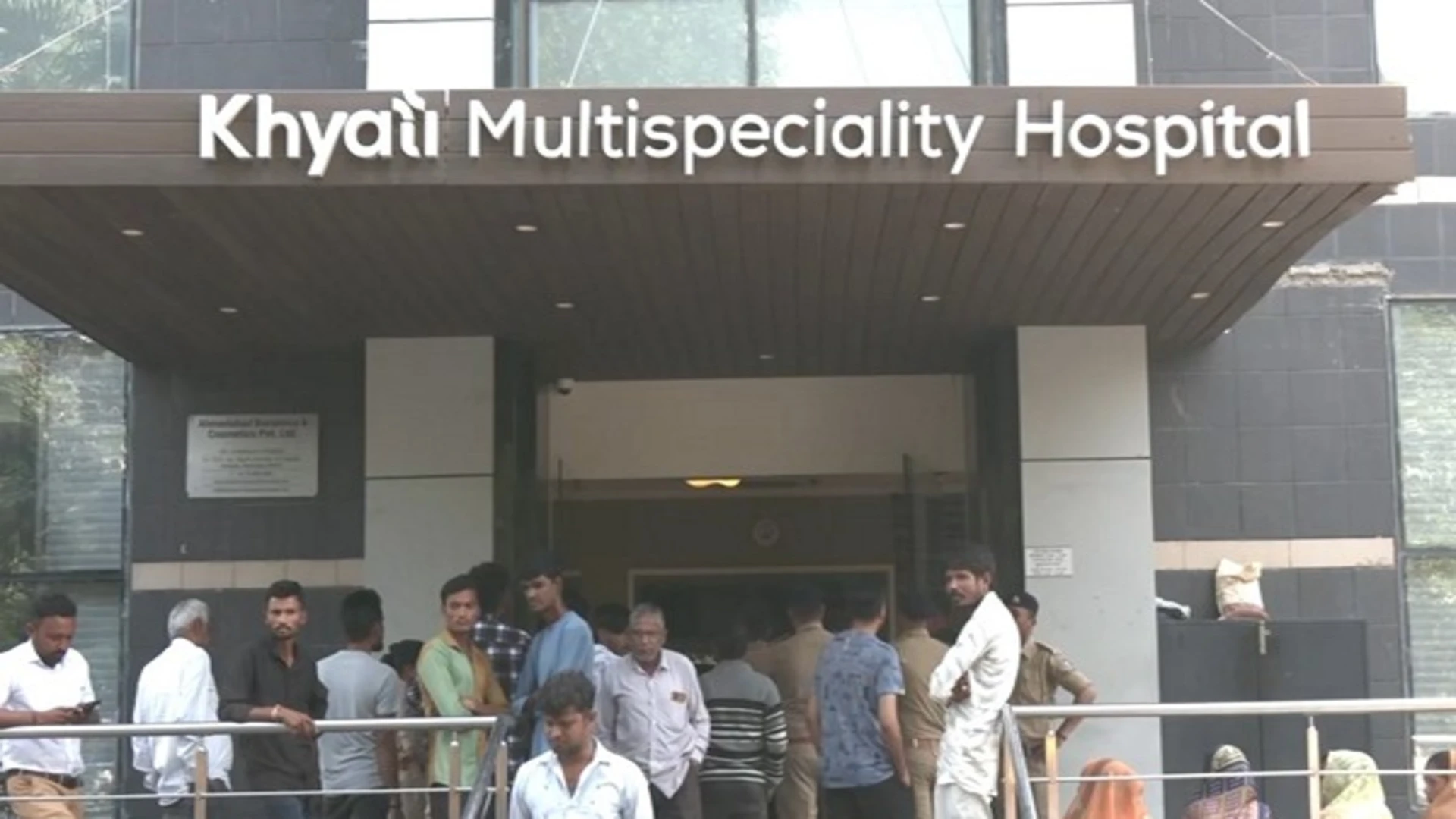
The forthcoming assembly elections in the states of Uttar Pradesh, Uttarakhand, Punjab, Goa and Manipur are now significantly becoming more interesting and more complex in a variety of ways than one might think. Of them, Uttar Pradesh is the star attraction of the show because of its momentous contribution in determining the future of the national government in 2024. The state of Uttar Pradesh had been ruled by the Indian National Congress for about 42 years, which continued intermittently until 1988. The oldest party of the country was relegated to the background since 1989 with the triumphant entry of new players like the Samajwadi Party, the Bahujan Samaj Party, and the Bhartiya Janata Party.
 Samajwadi Party (SP) chief Akhilesh Yadav, Rashtriya Lok Dal (RLD) chief Jayant Chaudhary, along with others, raise hands during a public meeting ahead of the Uttar Pradesh Assembly elections, in Mathura on Saturday. ANI
Samajwadi Party (SP) chief Akhilesh Yadav, Rashtriya Lok Dal (RLD) chief Jayant Chaudhary, along with others, raise hands during a public meeting ahead of the Uttar Pradesh Assembly elections, in Mathura on Saturday. ANI
This time there is hardly any region, be it the Western Uttar Pradesh, Awadh, Bundelkhand, or Purvanchal, which has not caused unprecedented political tremors in the state of Uttar Pradesh. The immediate focus of attention which has shattered the confidence of the ruling dispensation has been western Uttar Pradesh. It is primarily because of the combination of the rising popularity of Jayant Chaudhary as the leader of the Rashtriya Lok Dal (RLD) and the antipathy of the vast mass of peasantry and townsfolks towards the incumbent government.
Western Uttar Pradesh has been Jayant Chaudhary’s family bastion. His grandfather Chaudhary Charan Singh, two-time Chief Minister and the Former Prime Minister, had remained unchallenged and undisputed leader of the area from the early times of 1937 until his demise in 1987. After his death, his son Chaudhary Ajit Singh took command of the party and steered the affairs of the RLD until his passing away in May, 2021. The mass base of the RLD party somehow got shifted to the BJP since 2014 general elections. The peasant class overwhelmingly supported the BJP on the promises of help for Muzaffarnagar’s riot victims on the one hand and on the other hand to provide remunerative prices for their agricultural produce as well as jobs for the youth. After waiting for seven long years, they became completely disillusioned with the leadership of the incumbent government and decided to switch over to another outfits. The farmers’ movement against three farm Acts that were passed by the Parliament of India in September 2020 became a rallying point for the peasant class to come out in open against the policies of the present dispensation.
Bhartiya Kisan Union leader Rakesh Tikait’s emotional outburst on the evening of 28th January 2021 and Jayant Chaudhary’s unstinted support of RLD to him at that moment proved to be a major turning point not only to the farmers movement but also to Jayant Chaudhary.
Since January 2021, Jayant came out openly in support of the farmers movement. He organized a number of Mahapanchayat (assembly of people) in the western belt wherein he started raising pertinent issues affecting the life of every common man. He especially focused on a couple of pertinent issues like payment of outstanding dues to sugarcane farmers, remunerative prices of farmers’ produce, unemployment, rising prices leading to inflation, unabated crime rates, corruption in the public sector and electricity tariff rates for domestic and borewell consumers which have caught the imagination of the masses. Another significant initiative that Jayant undertook has been organizing a number of Yatras for the promotion of brotherhood with a view to mitigating the bitterness that had arisen during 2013 Muzaffarnagar’s riots between Hindus, especially the Jats and Muslims. In addition, he started voicing his support for all those who were oppressed, be it Lakhimpur Kheri episode or Hathras episode where police force threw lathi blows on him when he stood in support of justice for the Dalit girl victim.
Within a couple of months, Jayant, who was living under the shadow of his father until May 6, 2021 emerged as a leader as prudent and courageous like his grandfather. He has successfully been able to attract the youth as well peasants towards his agenda. A series of his recent interviews reveal beyond doubt that he has been continually evolving in his thoughts, convictions, principles and beliefs. He speaks his mind openly without brutalising others or causing undue offence. He appears to have learnt the art of blending all the three ingredients-confidence, humility and skill. It seems that he has understood fast that in democracy people may be mobilized through persuasion and logic.
The kind of enthusiasm that he has infused amongst the youth and the peasantry is like that of his grandfather’s when he had formed the Bhartiya Kranti Dal (BKD) in 1967 and won 98 seats in the UP Assembly. It is quite obvious that his incredible work dedication and fighting spirit will pay richer dividends to the RLD and the SP alliance. Although Jayant’s and Akhilesh’s fathers did not pull along well, the young Turks seem to have a good deal of faith in socialism.
The supporters of Jayant feels that he has not been given his due in terms of number of seats by Akhilesh. But the compromise that he has made without sacrificing his dignity also portrays his vision and maturity which in the long run would produce desired results. If the SP-RLD alliance crosses the magic number, it is going to be a turning point in UP politics for times to come.
The growing support base of Jayant in the western UP which is going to the poll on the 10th of February has become a matter of concern for some. Efforts made to placate Jayant have not yielded anticipated results. As of now, his refusal to rise to the bait has demonstrated his political maturity and adherence to his own principles. Only time will tell if these presumptions will change.
It would have been a cakewalk for the incumbent government had it taken care of the payment of outstanding dues of sugarcane farmers, completed the recruitment of teachers, constables, patwaries, etc. in time and brought down the electricity tariff rates at par with other neighbouring states. These were the doable propositions without drastic repercussions to endure the present imbroglios. Another significant aspect that has obviously remained missing in the western belt has been the identification and promotion of a creditable leadership.
As is believed by some political pundits that the western belt will give an edge to the RLD- SP alliance but that alone is not sufficient as much will also depend upon Awadh, Bundelkhand and Purvanchal which have sizable number of seats. In any case the outcomes of the present elections will have serious consequences for Jayant. In either situation it will not be a cakewalk for him. He will have to display more matured leadership to keep his flock together besides creating a team of sensible and experienced people around him who could ensure the implementation of the promises of his high-voltage manifesto. And, with his father gone, he will have to be his own protector.
The writer is former Chairman, UGC. The views expressed are the writer’s personal.















